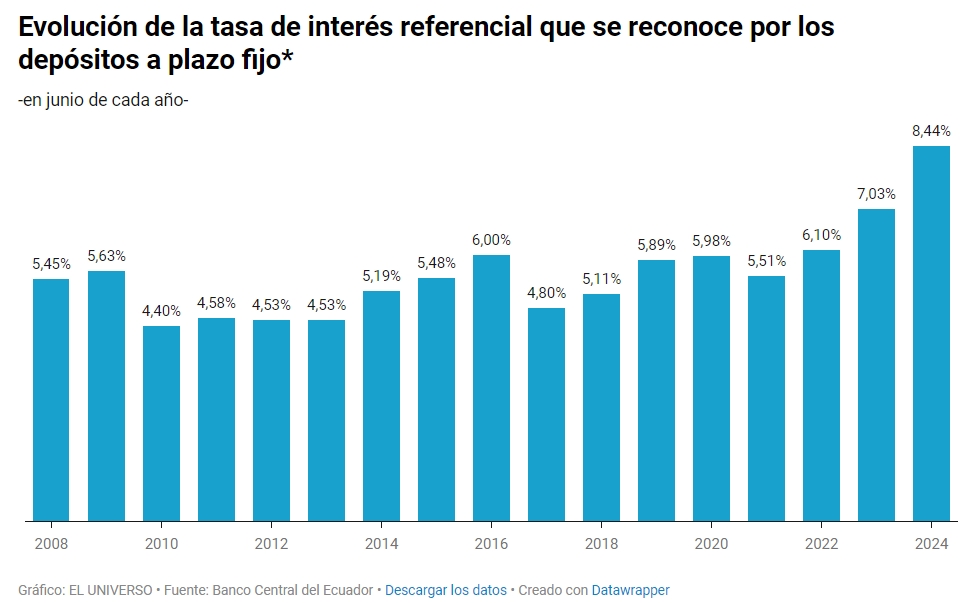June sees highest fixed deposit interest rates in fifteen years
In June 2024, Ecuadorian financial institutions such as banks and credit-unions offered a record-breaking fixed currency deposit interest rate of 8.44%, according to the monthly reports published by the Central Bank of Ecuador. This is the highest return seen in the last fifteen years, at least since January 2008.
Interest rates
The passive interest rate is what financial institutions pay for holding a deposit over a specified period. The Central Bank of Ecuador publishes the annual reference passive interest rates based on the duration of the deposit. For instance, the reference passive rate in June 2010 was 4.4%, which has risen by 4.04 percentage points to 8.44% in June 2024. Between June 2023 and June 2024 alone, the rate increased from 7.03% to 8.44%.
High inflation and rising interest rates abroad have pressured local banks and credit-unions to increase their rates to retain deposits. The 8.44% rate is an average; the actual return depends on each financial institution and the deposit term.
Interest rates for fixed deposits by term
Term - Annual Yield
30-60 days - 7.57%
61-90 days - 8.38%
91-120 days - 7.88%
121-180 days - 8.59%
181-360 days - 8.48%
361 days and more - 9.64%
Source: Central Bank of Ecuador (June 2024)
To compare the annual yields between banks and credit-unions for currency deposits you can use our own tool: Compare CDs.
Total currency deposit holdings in Ecuador
As of April 2024, private bank (fixed) currency deposits in Ecuador amounted to $20.793 billion. Adding $14.723 billion from credit-unions and mutualists, the total reaches $35.517 billion.
The 181 to 360 days term is the most popular, with $10.478 billion frozen in banks and credit-unions.
In April 2024, 386,580 private bank clients had currency deposits, according to Datalab of the Association of Banks of Ecuador (Asobanca). The Superintendence of the Popular and Solidarity Economy reported 793,987 cooperative and mutualist clients with currency deposits as of March 2024.
Source: El Universo.

Comments
loading...